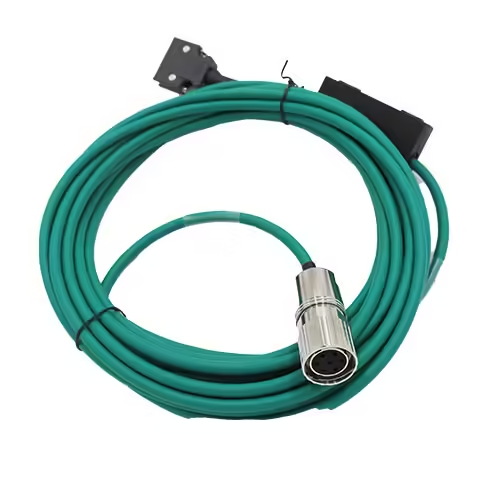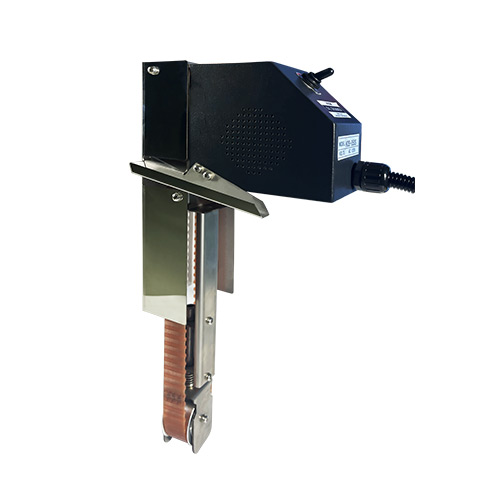-
WhatsAPP: +86 18706448138
-
Tengzhou, Shandong, China

The Ultimate Guide to Buying a Precision Lathe
Choosing the right precision lathe involves understanding your specific needs, evaluating technical specifications, and considering long-term.
Table of Contents
Introduction

Purchasing a precision lathe is a significant investment for any workshop, whether you’re a hobbyist, a small business owner, or managing a large-scale manufacturing operation. This machine is a cornerstone of machining, enabling the creation of intricate parts with high accuracy. Choosing the right precision lathe involves understanding your specific needs, evaluating technical specifications, and considering long-term operational goals. This guide aims to walk you through every critical aspect of the buying process, ensuring you make an informed decision that aligns with your machining requirements. From understanding the types of lathes available to assessing key features and budgeting, we’ll cover everything you need to know to select the perfect machine for your workshop.
Why Invest in a Precision Lathe?
A precision lathe is a versatile tool designed for shaping materials like metal, wood, or plastic with exceptional accuracy. These machines are essential for industries such as aerospace, automotive, and medical device manufacturing, where tight tolerances are non-negotiable. Unlike standard lathes, a precision lathe offers enhanced control, repeatability, and the ability to produce complex geometries. Investing in one can improve production efficiency, reduce waste, and elevate the quality of your output. Whether you’re crafting prototypes or producing high-volume parts, this machine ensures consistent results, making it a valuable asset for any serious machinist.
Benefits of Using a Precision Lathe
The advantages of owning a precision lathe extend beyond basic functionality. These machines allow for intricate detailing, such as threading, boring, and turning, with minimal error margins. They are equipped with advanced features like digital readouts (DROs) and CNC capabilities, which streamline operations and reduce manual labor. Additionally, they can handle a variety of materials, from soft aluminum to hardened steel, offering flexibility for diverse projects. The precision lathe’s ability to maintain tight tolerances ensures that parts meet exact specifications, which is critical for industries with stringent quality standards.
Types of Precision Lathes Available

Precision lathes come in various forms, each suited to specific applications. Understanding the differences between these types is crucial for selecting the right one. Common types include bench lathes, engine lathes, and CNC lathes. Bench lathes are compact and ideal for small workshops or hobbyists. Engine lathes are larger, more robust, and suited for heavy-duty tasks. CNC lathes, equipped with computer numerical control, offer automation and precision for complex, high-volume production. Each type has unique strengths, so your choice will depend on factors like workpiece size, production volume, and available space.
Manual vs. CNC Precision Lathes
When choosing a precision lathe, one of the first decisions is whether to opt for a manual or CNC model. Manual lathes require skilled operators and are best for low-volume, custom work where hands-on control is preferred. CNC lathes, on the other hand, use programmed instructions to automate tasks, making them ideal for repetitive, high-precision jobs. While CNC models are more expensive, they reduce labor costs and increase efficiency over time. Consider your production needs and operator expertise when deciding between these two options.
Key Features to Look for in a Precision Lathe
Selecting a precision lathe involves evaluating several critical features to ensure it meets your needs. Key considerations include spindle speed, bed length, swing capacity, and control systems. Spindle speed determines how fast the workpiece rotates, affecting cutting efficiency and surface finish. Bed length and swing capacity dictate the size of workpieces you can handle. For CNC lathes, look for user-friendly software and compatibility with CAD/CAM systems. Additional features like coolant systems, tool turrets, and DROs can enhance performance and ease of use.
Spindle and Chuck Specifications
The spindle and chuck are at the heart of any precision lathe. The spindle’s power and speed range determine the machine’s versatility across materials and applications. Variable speed control is a must for adapting to different cutting conditions. The chuck, which holds the workpiece, should be robust and compatible with your project requirements. Three-jaw chucks are common for general use, while four-jaw chucks offer greater flexibility for irregular shapes. Ensure the spindle and chuck are durable and precise to maintain accuracy during operation.
Precision Lathe Specifications Comparison Table
To help you compare key specifications when shopping for a precision lathe, the following table outlines typical features across different lathe types. This can guide your decision-making process by highlighting differences in capacity and functionality.
| Feature | Bench Lathe | Engine Lathe | CNC Lathe |
|---|---|---|---|
| Max Swing Diameter | 8-12 inches | 12-20 inches | 10-30 inches |
| Bed Length | 20-40 inches | 40-80 inches | 40-120 inches |
| Spindle Speed Range | 100-2500 RPM | 50-2000 RPM | 50-4000 RPM |
| Power Requirements | 0.5-2 HP | 3-10 HP | 5-20 HP |
| Control Type | Manual | Manual | CNC (Programmable) |
| Typical Applications | Small parts, hobby | General machining | High-volume, complex |
| Footprint | Compact | Large | Medium to Large |
This table provides a general overview, but always check manufacturer specifications for exact details.
Space and Setup Considerations

Before purchasing a precision lathe, evaluate your workshop’s space and infrastructure. These machines require a stable, level surface and adequate clearance for operation and maintenance. CNC lathes, in particular, may need additional space for computer stations and peripherals. Ensure your electrical system can handle the machine’s power requirements, and consider ventilation or coolant systems for heat and debris management. Proper setup is critical to maximizing the machine’s performance and ensuring operator safety.
Power and Safety Requirements
Precision lathes, especially larger models, demand significant power, often requiring three-phase electricity for industrial settings. Verify that your workshop’s electrical capacity matches the machine’s needs. Safety is also paramount—look for lathes with built-in safety features like emergency stops, guards, and interlocks. Train operators thoroughly to handle the machine safely, and establish a maintenance schedule to keep it in optimal condition.
Evaluating Manufacturers and Suppliers
Choosing a reliable manufacturer or supplier is as important as selecting the right precision lathe. Research brands with a strong reputation for quality and after-sales support. Read customer reviews, check warranty terms, and inquire about spare parts availability. Some manufacturers offer training programs or on-site installation, which can be valuable for first-time buyers. Compare multiple suppliers to find the best combination of price, service, and reliability.
Questions to Ask Your Supplier
When contacting suppliers, ask specific questions to ensure the precision lathe meets your needs. Inquire about delivery times, installation support, and warranty coverage. Ask for demonstrations or references from other customers to gauge the machine’s performance. Clarify maintenance requirements and the availability of technical support. These questions will help you assess whether the supplier can meet your expectations and provide ongoing support.
Maintenance and Longevity of a Precision Lathe

Regular maintenance is essential to keep your precision lathe in top condition. Follow the manufacturer’s guidelines for lubrication, cleaning, and calibration. Regularly inspect components like the spindle, chuck, and ways for wear and tear. For CNC lathes, keep software updated and back up programs to avoid data loss. Proper maintenance extends the machine’s lifespan, reduces downtime, and ensures consistent precision in your work.
Common Maintenance Tasks
Routine maintenance tasks for a precision lathe include lubricating moving parts, checking alignment, and cleaning chips and debris. For CNC models, regularly calibrate the control system and inspect servo motors. Keep an inventory of critical spare parts, such as belts and bearings, to minimize downtime. Schedule professional servicing annually to address any underlying issues and maintain optimal performance.
Conclusion
Choosing the right precision lathe requires careful consideration of your workshop’s needs, budget, and long-term goals. By understanding the types of lathes available, evaluating key features, and selecting a reputable supplier, you can invest in a machine that enhances your productivity and quality. Whether you’re a hobbyist or a professional machinist, the right lathe will elevate your work to new levels of precision and efficiency. Ready to find the perfect precision lathe for your workshop? Contact us today to explore top-quality options and get expert guidance.
FAQ
What is a precision lathe used for?
A precision lathe is used for shaping materials like metal, wood, or plastic with high accuracy. It’s ideal for creating parts with tight tolerances, such as components for aerospace, automotive, or medical applications.
How do I choose between a manual and CNC precision lathe?
Manual lathes are best for custom, low-volume work and require skilled operators. CNC lathes are ideal for automated, high-volume production with complex designs. Consider your production needs and operator expertise.
How much space does a precision lathe require?
Space requirements depend on the lathe type. Bench lathes need minimal space, while engine and CNC lathes require larger areas, including clearance for operation and maintenance.


